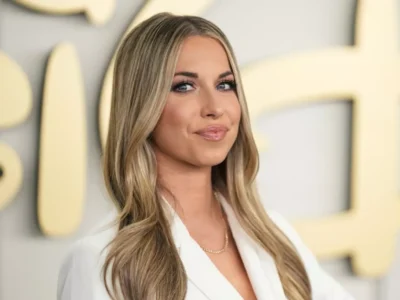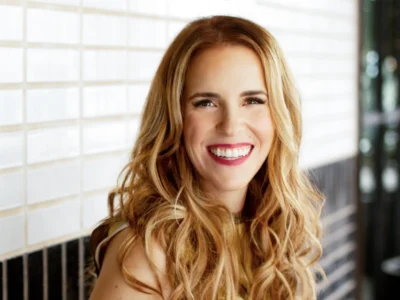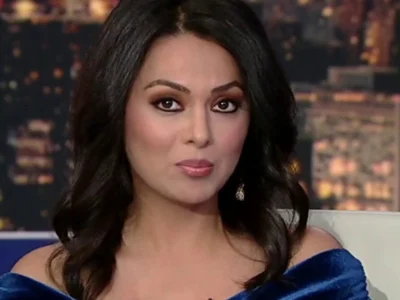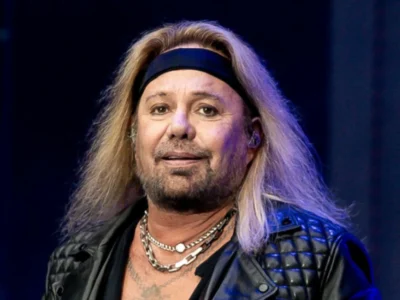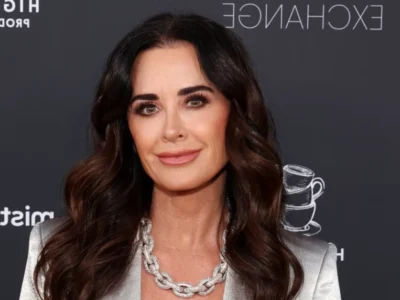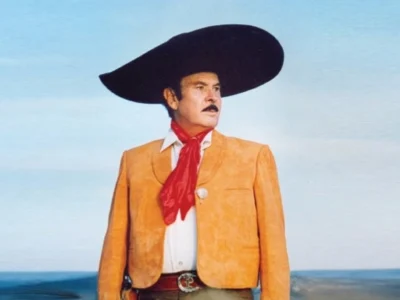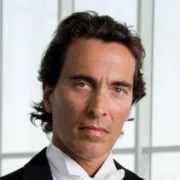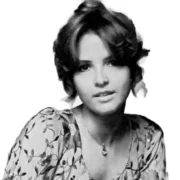
Have you ever heard of Noel J. Mickelson? If not, you’re in for a treat. This remarkable woman was not just the ex-wife of a famous actor, but a talented artist, skilled carpenter, and world-ranked equestrian in her own right. Born in Estherville, Iowa, Noel J. Mickelson’s life was a tapestry of diverse experiences and accomplishments that many might find surprising. From her Ashkenazi Jewish roots to her groundbreaking interracial marriage during the tumultuous 1960s, Mickelson’s story is one of talent, perseverance, and breaking barriers.
So, let’s dive into the fascinating life of this extraordinary woman who left an indelible mark on both the art world and the civil rights movement.
Who is Noel J. Mickelson?
Noel J. Mickelson was a woman of many talents. She was an accomplished artist, painter, and sculptor, as well as a skilled carpenter and world-ranked equestrian. But perhaps what she’s most known for is her marriage to actor John Amos, famous for his roles in “Good Times” and “Coming to America.”
Born into an Ashkenazi Jewish family with roots in Eastern Europe, Mickelson grew up in Estherville, Iowa. Her upbringing in this small Midwestern town would later influence her artistic work, which often featured themes from nature.
Mickelson’s life was marked by a series of achievements in various fields. She wasn’t just John Amos’s ex-wife; she was a force to be reckoned with in her own right. Her diverse interests and talents made her a unique figure, bridging the worlds of art, craftsmanship, and equestrian sports.
Early Life
Noel J. Mickelson’s early life in Estherville, Iowa, laid the foundation for her future pursuits. Growing up in this small town, she was surrounded by the natural beauty that would later inspire her artistic work. But what was it like for a young Ashkenazi Jewish girl in the heart of the Midwest?
Estherville, with its population of just over 6,000, was a far cry from the bustling urban centers where many Jewish families settled. Yet, it was here that Mickelson developed her love for nature and animals, particularly horses. This early connection with the outdoors would play a significant role in shaping her future career choices.
As a child, Mickelson likely faced the challenges of being part of a minority community in a predominantly Christian area. However, these experiences may have contributed to her resilience and open-mindedness, traits that would serve her well in her later life.
It’s worth noting that Mickelson’s Ashkenazi Jewish heritage, with its rich cultural traditions, likely influenced her artistic sensibilities. The emphasis on education and creative expression in Jewish culture might have played a role in nurturing her talents from an early age.
Education
After her formative years in Estherville, Noel J. Mickelson’s educational journey took her to Colorado State University. This move from small-town Iowa to a larger academic setting must have been an exciting change for the young Mickelson.
Colorado State University, known for its strong programs in agriculture and veterinary medicine, was likely an attractive choice for Mickelson given her love for animals, particularly horses. But what did she study there? While specific details about her major are scarce, it’s possible that she pursued studies related to her interests in art or equestrian sports.
University life would have exposed Mickelson to a diverse range of people and ideas, broadening her horizons beyond her small-town upbringing. This exposure might have played a role in shaping her worldview and preparing her for the varied career path she would later pursue.
It’s also worth considering how Mickelson’s time at Colorado State University might have influenced her artistic development. The beautiful Colorado landscape, with its mountains and open spaces, could have provided fresh inspiration for her nature-themed artwork.
Career
1. Artistic Pursuits
Noel J. Mickelson’s career as an artist was marked by her talent and versatility. She was not just a painter, but also a sculptor, showcasing her ability to express her creativity in various mediums. But what set Mickelson’s art apart?
Her work often reflected themes from nature, drawing inspiration from her upbringing in Estherville, Iowa. The rolling prairies, the changing seasons, and the wildlife of the Midwest likely found their way into her paintings and sculptures. This connection to her roots gave her art a unique perspective, blending the rural Midwest with her more cosmopolitan experiences.
Mickelson’s artistic career wasn’t just a hobby; it was a serious pursuit. She gained recognition in the art world, though specific details about exhibitions or collections featuring her work are hard to come by. How did her experiences as a carpenter and equestrian influence her art? It’s possible that her hands-on skills as a carpenter brought a unique tactile quality to her sculptures, while her love for horses might have inspired some of her subjects.
2. Carpentry
In addition to her artistic pursuits, Noel J. Mickelson was also a skilled carpenter. This combination of fine art and practical craftsmanship is intriguing. How did Mickelson balance these two seemingly different fields?
Carpentry requires precision, patience, and an understanding of materials – skills that could have complemented her work as a sculptor. Perhaps Mickelson saw carpentry as another form of artistic expression, one that allowed her to create functional pieces alongside her more abstract art.
Her career as a carpenter is noteworthy, especially considering that it was (and still is) a male-dominated field. Did Mickelson face challenges as a woman in this industry? If so, how did she overcome them? Her success in this field speaks to her determination and skill.
3. Equestrian Achievements
Perhaps one of the most fascinating aspects of Noel J. Mickelson’s diverse career was her success as an equestrian. She wasn’t just a casual rider; Mickelson was world-ranked, competing in various events. But how did she balance this demanding sport with her artistic and carpentry careers?
Equestrian sports require dedication, physical fitness, and a deep connection with horses. Mickelson’s achievements in this field suggest that she possessed all these qualities in abundance. Her love for horses, likely cultivated during her childhood in Iowa, had blossomed into a professional pursuit.
What specific equestrian events did Mickelson compete in? Was she a show jumper, a dressage rider, or did she participate in other disciplines? While the details are scarce, her world ranking indicates that she competed at a high level, possibly in international events.
Personal Life
1. Marriage to John Amos
One of the most notable aspects of Noel J. Mickelson’s personal life was her marriage to actor John Amos. The couple tied the knot in 1965, at a time when interracial marriages were still controversial and, in some states, illegal. Their union came just two years before the landmark Loving v. Virginia case, which struck down laws banning interracial marriage across the United States.
Mickelson and Amos’s marriage was groundbreaking in many ways. As an Ashkenazi Jewish woman marrying an African American man in the 1960s, they faced not only legal challenges but also societal prejudices. How did they navigate these obstacles? Their relationship likely required courage, mutual respect, and a shared commitment to challenging the status quo.
John Amos would go on to become a well-known actor, starring in shows like “Good Times” and films like “Coming to America.” How did Mickelson support her husband’s rising career while pursuing her diverse interests? Their marriage lasted for ten years, ending in divorce in 1975. Despite the end of their romantic relationship, both Mickelson and Amos had made a significant impact on the fight against racism through their union.
2. Children
Noel J. Mickelson and John Amos had two children together: Shannon Amos and K.C. Amos. Both children have followed in their father’s footsteps to some extent, entering the entertainment industry.
Shannon Amos has worked as a producer and writer, while K.C. Amos has pursued acting and directing. How did Mickelson’s diverse interests and talents influence her children’s career choices? Did they inherit her artistic abilities or her love for horses?
Raising biracial children in the 1960s and 70s must have come with its own set of challenges. How did Mickelson approach parenting in this context? Her experiences as part of an interracial couple likely informed her parenting style and the values she instilled in her children.
Achievements and Recognition
Noel J. Mickelson’s achievements spanned multiple fields, earning her recognition in artistic circles, the carpentry industry, and the equestrian world. But what specific accolades did she receive?
In the art world, Mickelson was respected for her paintings and sculptures. While detailed information about exhibitions or awards is limited, her work was likely showcased in galleries and possibly private collections. Her ability to capture natural themes in her art, inspired by her Midwestern upbringing, may have set her apart from her contemporaries.
As a carpenter, Mickelson broke barriers in a male-dominated field. Her success in this industry speaks to her skill and determination. Did she receive any industry recognition for her work? Were there any notable projects or structures she contributed to?
In the equestrian world, Mickelson’s achievements were perhaps the most quantifiable. As a world-ranked equestrian, she likely participated in high-level competitions. What were some of her most significant victories or memorable performances?
Beyond her professional achievements, Mickelson’s interracial marriage to John Amos in 1965 was itself a form of activism. By choosing to marry across racial lines at a time when it was still illegal in many states, Mickelson and Amos contributed to the ongoing fight for civil rights. Their marriage, which predated the Loving v. Virginia decision by two years, helped pave the way for greater acceptance of interracial relationships.
Later Years and Death
As Noel J. Mickelson entered her later years, she continued to pursue her passions. Her love for art, carpentry, and equestrian sports didn’t wane with age. But how did her focus shift in these later years? Did she take on new projects or explore different artistic styles?
Mickelson’s later life was likely influenced by her diverse experiences and the changing social landscape. As interracial marriages became more accepted and her children grew into adulthood, how did she reflect on her earlier experiences? Did she remain involved in civil rights causes?
Sadly, Noel J. Mickelson passed away in December 2016. Her death marked the end of a life filled with creativity, skill, and trailblazing experiences. How was her passing marked by the various communities she had been part of – the art world, carpentry industry, and equestrian circles?
While specific details about her later years and death are limited, it’s clear that Mickelson left behind a rich legacy. Her life serves as an inspiration, showing how one can excel in multiple fields and make a difference in society.
Conclusion
Noel J. Mickelson’s life was a testament to the power of pursuing diverse passions and breaking societal barriers. From her early days in Estherville, Iowa, to her time at Colorado State University, and through her multifaceted career and personal life, Mickelson carved out a unique path for herself.
As an artist, she brought the natural beauty of her Midwestern roots to life through her paintings and sculptures. Her work as a carpenter showcased her practical skills and determination to succeed in a male-dominated field. And as a world-ranked equestrian, she demonstrated her athletic prowess and deep connection with horses.
But perhaps Mickelson’s most significant impact was through her personal life. Her marriage to John Amos in 1965 was a bold statement against racial prejudice, coming at a time when interracial marriages were still illegal in many states. This union, which resulted in two children who would go on to make their marks in the entertainment industry, helped pave the way for greater acceptance of interracial relationships.
Noel J. Mickelson’s story is one of talent, perseverance, and breaking boundaries. She wasn’t just the ex-wife of a famous actor; she was an accomplished in her own right, excelling in multiple fields and contributing to social change. Her life serves as an inspiration, showing that it’s possible to pursue diverse interests, challenge societal norms, and leave a lasting impact on the world.
As we remember Noel J. Mickelson, we’re reminded of the power of following our passions, standing up for what we believe in, and embracing the many facets of our identities. Her legacy lives on through her art, her children, and the barriers she helped break down. In many ways, Noel J. Mickelson’s life was a work of art itself – complex, beautiful, and profoundly impactful.

